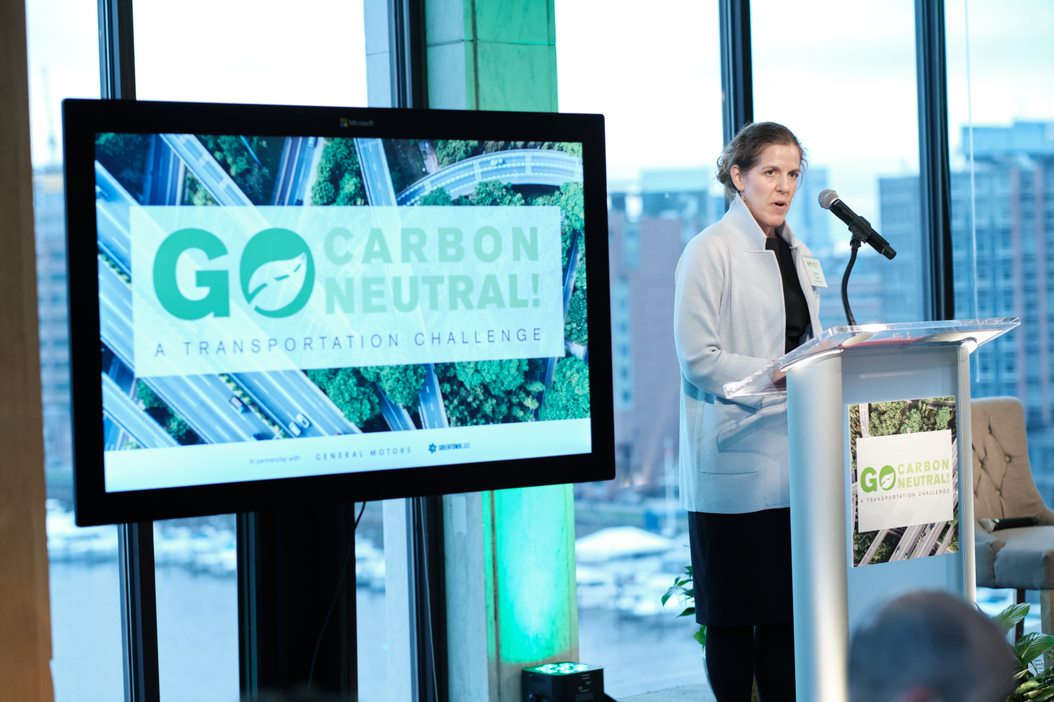The Boston Museum of Science is challenging students across New England to help the city achieve carbon neutrality within the next 3 decades. Photo contributed by Ryan Thomas, Museum of Science marketing specialist.
Climate change is one of the most prominent issues that scientists will have to address in the near future, but students are able to contribute their knowledge to this cause as well, in part because of the Boston Museum of Science.
The third annual “Go Carbon Neutral Challenge,” put on by the Museum of Science in Boston, is asking students to submit a proposal to help the Boston area to achieve carbon neutrality by 2050.
Any student enrolled in an accredited university in New England can sign up to participate in this event.
Over the course of the challenge, students will be able to meet and work with multiple mentors that have been recruited from green-technology industries, according to Jonathan Fanning, an education associate for community initiatives at the Museum of Science. He said these mentors will help students develop more nuanced and well-rounded proposals before pitching them to a judging panel and being put on the Museum of Science website for the public to vote on. The sooner teams sign up, the sooner they can work with mentors.
“We are still accepting registrations because we really want to open it up to as many students as possible,” Fanning said. “We know this is a difficult time, especially in this virtual space, so if we can provide help right now to students who are looking to enter green tech spaces or climate change mitigation, we want to be at the forefront of STEM leadership in those areas, we want to be able to provide those resources for students.”
The competition will take place over multiple stages, spanning into late April for teams that make it to the finals. According to Fanning, the judging panel will announce 15 finalists, based off of their proposals, on March 26, which is the last day for submissions.
Following that date, the “finalist phase” will begin, where students will create videos to explain their proposals and work directly with a mentor. Finalists will then have an interview with the panel over Zoom where they will discuss their proposal.
“Those judges are folks that we’re collecting from around Boston so they’re in government, they’re in green technology,” Fanning said. “The point is obviously to judge the competition for our cash prizes, but also to expose students to folks who are actually working in this industry so they feel like they can talk to them in the future and hopefully establish some connections.”
Fanning said that a big part of this competition is creating connections and networking with individuals in the climate space.
Ryan Thomas, a marketing specialist at the Museum of Science, said that his job is focused on the marketing of these events. He said that sometimes, with events like this one, it can be hard to get the word out and get students to register for the event, and there is always a new challenge in recruiting students every year.
So far, 47 students have registered for the event, but none of them are from the University of Rhode Island. Fanning said that he and the rest of the panel are looking forward to seeing the ideas that the students propose, and that they will be important for the world’s future.
“We really see that as our primary goal is to empower students to feel like they have a place in that discussion because it is going to be the next generation of scientists and engineers who ultimately find the solutions for the climate change problems that we’re facing,” Fanning said.





